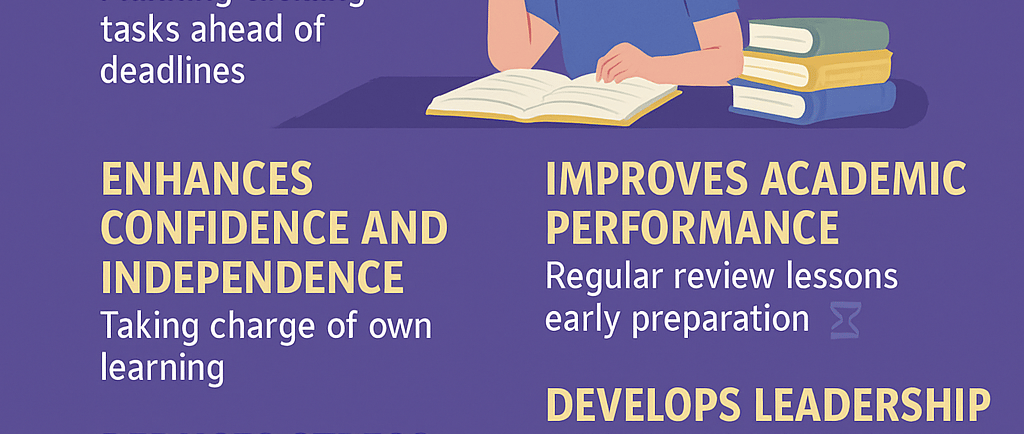The Power of Proactiveness: A Key to Student Success


In today’s fast-paced and competitive academic world, being a proactive student can make all the difference between just getting by and truly excelling. Proactiveness means taking initiative, planning ahead, anticipating challenges, and taking responsibility for one’s learning rather than waiting for things to happen. For students, adopting a proactive mindset can transform their academic journey and lay the foundation for lifelong success.
1. Builds Strong Time Management Skills
Proactive students don’t wait until the last minute to start studying or complete assignments. They plan their schedule in advance, break down large tasks into smaller goals, and allocate time smartly. This habit not only helps avoid the stress of deadlines but also improves the quality of work, giving students time to revise and polish their output.
2. Enhances Confidence and Independence
When students take charge of their own learning — whether it’s asking questions in class, seeking extra help, or exploring a topic beyond the textbook — they build self-confidence. They stop relying solely on teachers and become more independent learners. This habit pays off not just in school, but also in college and life beyond.
3. Reduces Stress and Improves Mental Health
One of the biggest causes of student anxiety is last-minute pressure. Proactive students plan ahead, which reduces uncertainty and panic. Instead of rushing to prepare the night before an exam, they’re calm and prepared. This organized approach contributes to better mental well-being and a healthier academic life.
4. Improves Academic Performance
Being proactive means reviewing lessons regularly, clarifying doubts on time, and preparing for tests in advance. As a result, proactive students retain information better and perform well consistently. They also engage more in class, participate in discussions, and complete assignments with a deeper understanding of the subject.
5. Develops Leadership and Problem-Solving Skills
Proactive students often become leaders — in group projects, classroom activities, and extracurricular roles. They don’t wait for someone to tell them what to do; they take initiative and offer solutions. This mindset is highly valued not only in academics but also in future workplaces and social situations.
6. Encourages Personal Growth and Lifelong Learning
Proactiveness helps students develop a growth mindset — the belief that they can improve with effort and time. These students are curious, self-driven, and open to learning from mistakes. They take feedback constructively and continuously look for ways to grow, both academically and personally.
How to Become More Proactive as a Student
Start each week with a plan. Use a planner or app to organize your tasks.
Set short-term and long-term academic goals.
Ask questions when in doubt — never hesitate.
Review your work regularly and reflect on your progress.
Don’t wait for reminders. Take the lead on your responsibilities.
Take care of your physical and mental health — it’s part of being proactive.
Conclusion
Proactiveness is a powerful habit that empowers students to take control of their academic life and beyond. It cultivates responsibility, boosts performance, and prepares them for future challenges. In a world that rewards self-starters, being proactive is not just helpful — it’s essential.
